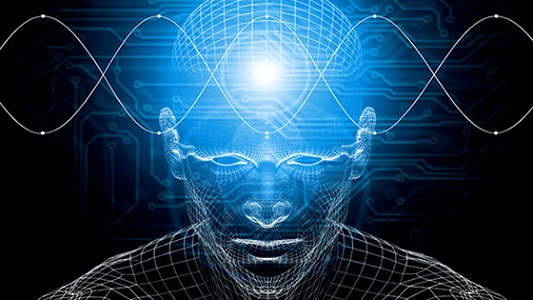
Introduction
Ayurveda differentiates the organs of the body into:-
- Jnanendriye which means organ of perception and
- Karmendriye, which stands for organ of action.
Ayurveda gives special status to Manas, more precisely mid, and describes it as ubhayendriya which stands for a blend of organ perception and action). Ayurveda system of medicine says that in the body-mind apparatus, mind controls the body thus proving importance of the mind towards the body. The mind is responsible for array of functions like perception, taking the right decisions thinking and understanding.
Synonyms of Manas
- Manas: Which has power of thinking
- Cittam: Which is subject for knowledge in depth
- Hrdayam: Which has the capability of holding or capturing.
Concept of the Manas
The concept of the mind is the salient feature of the Indian philosophy. We can encounter description of the mind in Veda (Riga Veda & Yagur Veda), Upanishads, Indian lexicons and Ayurvedic metaphysics.
One can classify concepts regarding mind in three distinct classes. We can classify them into 3 groups:-
- Materialistic class: Mimamsa, Vaisesika and Nyaya, say that Manas is a way for establishing connection between sensory organs and the soul.
- Psychic view: Patanjala, Samkya, Vedanta and Patanjala and Vedanta darsana are of the view that Manas has the property into transformation in the right forms. Triguna (Satva, Rajas, and Tamas) contributes towards the functioning of the mind.
- Spiritualistic view: The soul is considered to be conscious, so is manas, but consciousness on the part of manas is limited. Majority of the Indian Philosophers describe connection between Manas and the soul.
Form of the Mind
- Manas is devoid of any physical form. Experts call it as nirvikara.
- The athindriya property of the mind is well clarified by the signs of the manas
- Manas is the main platform through which man is exposed to pain, emotions, trauma and stress.
- Caraka, the great Indian physician is of the view that one can not imagine to learn without equilibrium between mind, sensory organs, subjects and above all the soul.
Location of the Mind
Ayurveda describes heart and brain as principal seats of mind. The motor and the sensory functions of the mind are attributed to uttamanga (brain). The psychological functions are attributed to the heart. According to Acharya Bhela, the mind is situated in the brain. As per modern psychology principles and practices, mind has dual aspects neurological and behavioural. The site of manifestation of neurological aspect is the brain whereas; the site of manifestation of emotional aspect is the heart.
Qualities of the Mind
- Sattva Guna is credited with consciousness, spiritual connection, positive attitude, lightness, and happiness. Sattva Guna has a stimulatory effect on the senses and is a representative of knowledge and intellect.
- Rajas Guna is considered to be active among the Trigunas and is characterized by motion and stimulation. Wish to achievement and passion and are major concerns of Rajas Guna.
- Tamas Guna is blessed with a couple of powerful characters, i.e. heaviness and resistance. Tamas Guna has a stimulatory effect on the negative attitude of the mind and results in their induction of sleep, apathy and lethargy,.
Manovikara
According to the Ayurvedic classics, manovikaras are being defined as a group of clinical manifestations normally affecting the persons with weak psyche.
Manovikaras are associated with behavioral changes due to several reasons:
- Imbalance of manodoshas or both shareera dosha and manodoshas
- Imbalance of manovaha srotas (channels of circulations having emotional impulses)
- Disturbed mental capacity
Manas Roga
Ayurveda demarcates the diseases at two levels:-
- Sharirika physical (physical) diseases
- Manasika (mental) diseases.
Nobody is in a position to study basic concepts of Ayurveda without undertaking connectivity between the consciousness and the mind. The gross and minute examination of the physical and mental mind diseases in Ayurvedic system of medicine is bit difficult subject.
The great Indian epics, Ramayana and Mahabharata have described manas roga like anxiety and depression. According to Charaka Samhita, imbalance of the biological humors results in physical diseases. Just like imbalance of the satva, rajas and tamas results in mental diseases.
Ayurveda clearly says that negative feelings are nothing but emotional toxins. If they are given proper care and eliminated from the body, they give rise to mental disorders like anxiety neurosis, melancholia, seasonal affective disorder, mania, bipolar diseases, chronic stress and above all, depression, etc. Ayurveda describes unmade and apasmara as an outcome of toxins produced at the mental level.
Some Manas roga mentioned in Ayurvedic texts are narrated below:-
- Insanity (Unmada)
- Epilepsy (Apasmara)
- Depression (Avasada)
- Anxiety neurosis (Chitto Udvega)
- Mental Retardation (Manas Mand)
- Obsessive Compulsive Disorder (Atatva abhinevisha)
- Chronic alcoholism (Madatyaya)
Conclusion
A person having equilibrium between three biological humors, metabolic fire, tissues, waste-products, the soul, sensory organs and the mind is known as healthy.
